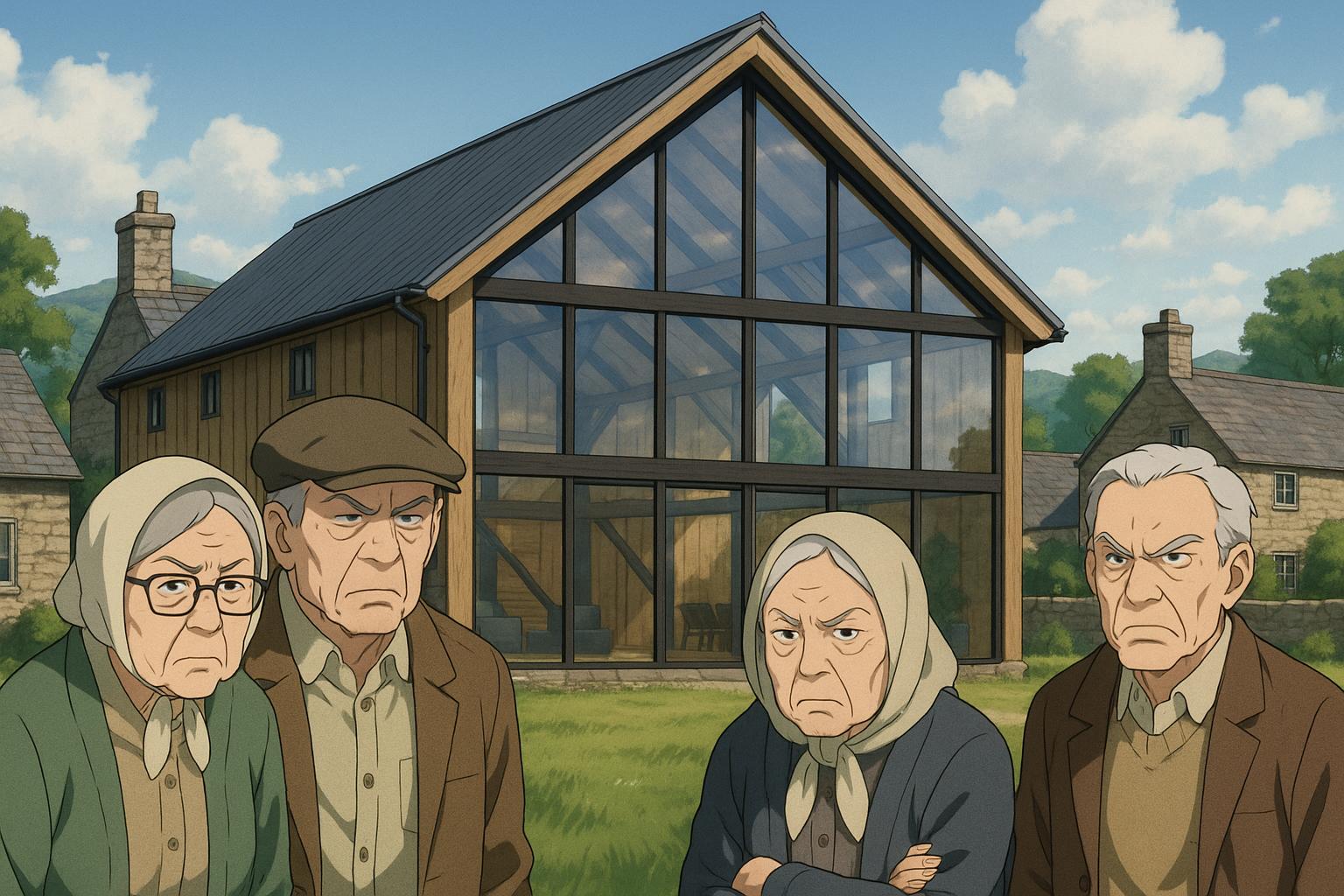In the picturesque village of Penisarwaun in North Wales, tensions have escalated dramatically over a luxury holiday barn conversion that some residents feel has transformed their tranquil community into an unwelcoming party hub. Karl Jones, the property developer behind the conversion, has come under intense scrutiny for allegedly turning the barn into a commercial holiday rental, charging guests £500 a night amid complaints of rowdy behaviour, noise, and invasions of privacy.
The barn, with its imposing 18-foot glass windows, has been likened to an "alien ocean liner" by local residents who feel that its modern design contrasts sharply with the rural setting. Neighbours have expressed grievances about visitors behaving inappropriately, with reports of nude guests enjoying a hot tub and playing loud music, disrupting the once-peaceful environment. Janet Gayther, 82, a resident overlooked by the barn’s extensive windows, complained that her life has become a "misery" due to frequent sightings of guests in compromising situations. She recounted many instances of disturbances, such as heavy drinking and boisterous antics, describing how it has intruded on her daily life.
Local authorities have reacted to these complaints; the Gwynedd Council issued an enforcement notice, demanding the cessation of the property’s use as a holiday let and requiring the removal of certain structural features. This action came after a retrospective planning application was refused, citing significant concerns about the impact on the local community. According to a council spokesperson, no appeal has been registered regarding these decisions, leaving the future of the barn uncertain.
The situation echoes a broader trend seen across rural areas in the UK, where communities are grappling with the implications of short-term rental properties. Similar grievances have arisen in various locations, from wedding venues in Norfolk to Airbnb properties in Kent, where residents have reported noise, disturbances, and a general decline in neighbourhood harmony. Sally Howard, a resident of Kent, shared her frustrations over living next door to a rental, commenting on the detrimental effects of noise and a waning sense of community spirit.
In light of these recurring issues, the UK government is considering introducing measures to regulate short-term rentals more stringently, responding to the clamor from rural residents who are increasingly disturbed by the behaviour of transient guests. Calls for these regulations arise from a desire to protect the character and peace of residential areas, particularly as the popularity of home-sharing platforms continues to surge.
Back in Penisarwaun, Jones remains resolute in defending his project. He insists that he was under the impression that all necessary approvals had been obtained throughout the building process. "It is incredibly disheartening to feel ostracised by the very community I belong to - simply because I sought to create a better future for my children," he lamented, referring to the financial challenges presented by the pandemic.
As the owner navigates the complaints and the potential threat of further actions from local authorities, the impact of his barn on community dynamics is unmistakable. It serves as a poignant reminder of the delicate balance between property development and community living, with residents calling for respect and consideration in an age increasingly filled with opportunism and changing societal norms. The outcome of this situation might well set a precedent for how similar developments are handled in rural settings across the UK, highlighting the ongoing struggle between private interests and communal peace.
Reference Map:
- Paragraph 1: [1], [2]
- Paragraph 2: [1]
- Paragraph 3: [1], [2]
- Paragraph 4: [1], [3]
- Paragraph 5: [5], [6]
- Paragraph 6: [4]
- Paragraph 7: [1]
- Paragraph 8: [1]
Source: Noah Wire Services
